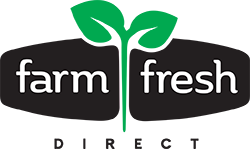As California celebrates Farm to School Month in October, two major initiatives are reinforcing the state’s leadership in child nutrition.
The Center for Ecoliteracy’s California Food for California Kids program is introducing new, culturally inspired, produce-forward dishes across its network of 160 school districts. At the same time, Governor Gavin Newsom has signed AB 1264, the nation’s first law banning ultra-processed foods from school lunches, underscoring a statewide commitment to serving fresh, whole foods that support both health and learning.
“The Center for Ecoliteracy is making it easier — and more exciting — for schools to meet nutrition guidelines while celebrating California’s abundant fruits and vegetables,” says Alexa Norstad, executive director of the Center for Ecoliteracy. “California Flavors recipes are student-tested, scalable across food service settings, and highlight fresh, local produce — bringing the vibrant flavors of our state directly to school cafeterias.”
Through its new “California Flavors” campaign, the Center for Ecoliteracy is helping schools celebrate the state’s agricultural abundance and cultural diversity. Menu items like Mango Carrot Lassi, Za’atar Lentil and Chickpea Falafel Burgers, and Aloo Masala Wraps showcase fresh fruits and vegetables sourced from California growers. These recipes were crafted with student feedback and align with new nutrition standards for reduced sodium and sugar. The program supports 160 school districts serving 2.4 million students statewide.
“From pozole to pancit, the Center for Ecoliteracy’s California Flavors recipes reflect the incredible diversity of California’s students and agriculture. These recipes invite young people to experience and connect food, culture, health, and the environment. The cafeteria becomes more than a place to eat — it becomes a classroom for curiosity, community, and lifelong healthy eating habits,” Norstad says.
California’s commitment to local, fresh and equitable school food is long-standing. The state was the first in the nation to provide universal free school meals from transitional kindergarten through 12th grade, with participation projected to reach 1 billion meals during the 2025-26 school year. The Center for Ecoliteracy’s initiative builds on that foundation, making it easier for nutrition departments to source and prepare seasonal produce while engaging students in tasting and learning events.
The policy side of California’s leadership is equally notable. Governor Newsom’s newly signed AB 1264 defines and phases out “the most concerning ultra-processed foods” from school cafeterias.
“California has never waited for Washington or anyone else to lead on kids’ health — we’ve been out front for years, removing harmful additives and improving school nutrition. This first-in-the-nation law builds on that work to make sure every California student has access to healthy, delicious meals that help them thrive,” Newsom says in a statement.
The law, authored by Assemblymember Jesse Gabriel,D–San Fernando Valley, represents a bipartisan, science-based effort to ensure school meals, saying, “California has taken a historic step toward protecting our children from harmful ultra-processed foods and chemical additives.”
The legislation aligns closely with California’s Farm to School program, championed by First Partner Jennifer Siebel Newsom, which promotes locally sourced, nutritious meals in tandem with the state’s Universal Meals initiative. Together, these efforts create both policy and market incentives for schools to prioritize fresh produce and for growers and distributors to expand their role in institutional foodservice.
“For too many students, the meals they receive at school are the only ones they can count on in a day, which makes the quality of that food all the more important,” Jennifer Newsom says. “By removing the most concerning ultra-processed foods, we’re helping children stay nourished, focused and ready to learn. AB 1264 is the first law of its kind in the nation and builds on California’s long record of leading with children’s health and well-being at the forefront. While Washington debates how to ‘make America healthy again,’ they need not look any further than California.”



















